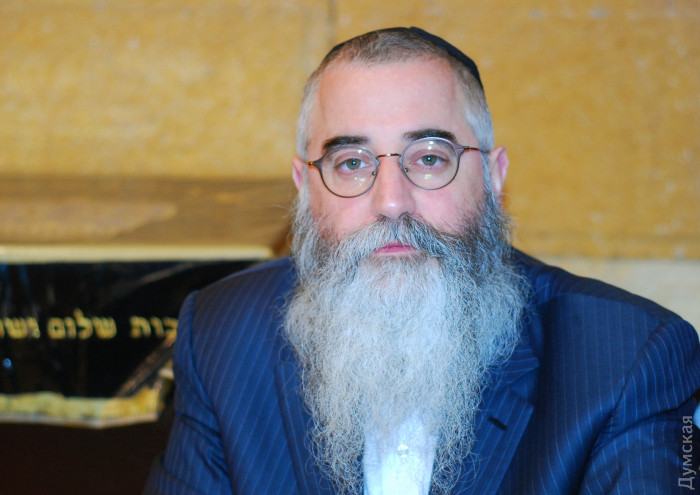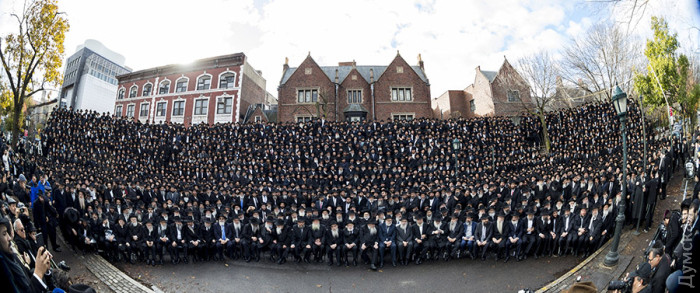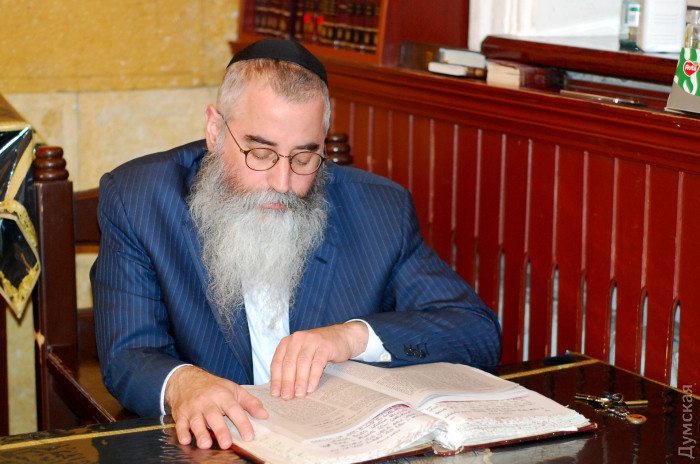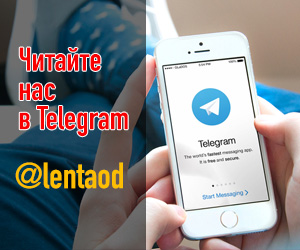With the onset of full-scale Russian aggression, public life in Odesa accelerated drastically. Volunteer, charitable, creative projects — all this has gained momentum and keeps helping the city to live in new conditions.
National-cultural societies and religious organizations are an important part of Odesa’s life. How do they live during the wartime? Seeking for the answers, we came to Abraham Wolf, the chief rabbi of Odesa and southern Ukraine.
We met at the Beit Khabad Synagogue on Osipova Street. The only reminder of the war here is a strict guard at the entrance, who asked to show not only a journalist’s ID, but also a passport.
«Dumskaya» has repeatedly spoken about Abraham Wolf. On March 16, together with representatives of other confessions, he addressed the word to inhabitants of Odesa and said that he was proud to work in Odesa. «This is the best city and the best country,» he said then.
We are talking in the synagogue hall. Now it is quiet here, since the evening prayer has just ended. Today, on the fortieth day of the war, Abraham Wolf is still smiling, charming and wise with experience. Only some weariness in his lively sly eyes says that we are in a country at war, in a city that was subjected to a powerful missile attack in the morning.
It is always interesting to talk with Rabbi Wolf. But now one feature is especially noticeable in his speech: he uses the words «we are», «our city», «our country» much more often while talking about Ukrainians and Ukraine.

«Dumskaya». How has your life and the life of the Jewish community changed since the beginning of the war?
Abraham Wolf. We’ve got much busier. We’ve been dealing with evacuation, providing assistance to refugees and the community. Meanwhile, in our synagogue, we still had to maintain everyday routines. And, of course, we had to communicate with the media. Since the beginning of the war, I have given probably a hundred interviews to international media. For some reason, everyone is asking me aboue «nazism» and «anti-semitism».
My answer is «Listen, I have been living here for thirty years, but I have never managed to learn Ukrainian language; I can’t read Ukrainian documents. So what, have I ever experienced any inconvenience or discrimination? Never ever.
There are five thousand rabbis like me across the world. Traditionally, we hold a yearly congress and discuss our issues. Frankly speaking, rabbis from all over the world envy me; they are envious about the opportunities that I have in Odesa when it comes to doing good things to others.
We opened schools, kindergartens, universities, and nursing homes. City and regional authorities supported us at every step. I know that, should we have any difficulties, I can always call the mayor and the governor — I have no doubts that they will hear me and help me. No one is «interfering» with us or «discriminating» against us. On the contrary, the state contributes to our community and supports us in our good deeds.
«D». Do you think that there is no anti-Semitism in Ukraine?
A.W. When I hear about the «anti-Semitism of Ukrainians», I always say: « I beg a pardon, but during the last presidential elections, 75% voted for a candidate whose father is Jewish and mother is Jewish. So what are we talking about?» They answer: «But twenty-five percent voted against it!» And I say: «No, 25% voted for another candidate, who was also said to be a Jew!»
«D». Do you personally feel safe in Ukraine?
A.W. Listen to what I say. Ukraine for a Jew is the safest country in the world.
Here I live in Odesa, I have a beard, a hat. I walk around the city in Jewish clothes, I have a black jacket with tsitses ( part of the traditional costume — Ed. ). And at the same time, wherever I am, I feel like an absolutely free person and in complete safety.
There is no such feeling elsewhere. When I walk around in Paris, I have to constantly look around — whether I have entered a dangerous quarter, whether someone is following me. During the years of my life in Odesa, I have never met hostility anywhere just because I am a Jew.
And it’s not only Paris! Even in Israel, 11 people have been killed last month, just because they were Jews. There has not been even a single case in Ukraine for thirty years of its independence! In Odesa I feel completely safe. Felt before the war had started.
Israel radio journalists have called me this morning and asked about the city life now. I told them: «Today is the day when the sky of Odesa turned black» ( on the morning of April 3, Russian troops launched a missile attack on the oil refinery, and the sky of Odesa was filled with smoke — Ed. ).
Of course, compared to other cities, Odesa’s life is more or less calm — probably being under the G-d’s protection. But everyone realizes the danger we are under. I look with eyes full of tears at photos from Mariupol and Kharkiv. And that what happened in Bucha is a disaster, it is beyond the understanding of any normal human being.
I understand that our synagogue can turn into ruins as well. But for now, we pray, we hope, we help.

The 2017 Annual Rabbinical Conference in New York drew 5,600 attendees
«D». How do Jewish communities live in the occupied territories, do you have any information?
A.W. Of course we have. My brother Yosef Yitzchok is now in Kherson. The community lives there, they hold G-services. I ask him: what has to happen for you to leave? He replies: I will be here as long as possible.
«D». That is, your brother remains with the community, as befits a rabbi?
A.W. Who knows what way it should be? Only G-d. We don’t know what way it will be better. My brother acts the way he believes is right.
«D». But as far as I know, Jewish children’s institutions were evacuated from Odesa.
A.W. Yes,they were, with the help of our community and international organizations, we took the children out. In Berlin, we were given a whole hotel, it’s like our «little Odesa» now. I have visited them. German President Steinmeier and his wife paid us a visit as well. We had lunch with everyone, had a great talk, and sang songs. After that, I returned to Odesa, however my wife Khaya remained in Berlin.
They ask me how many people left Odesa. I answered: in general, the percentage of Jews who were evacuated and those who went to fight is the same as other nationalities, everything is proportional. Jews are citizens of their state, and now we stand together with the entire Ukrainian people.
«D». I was really surprised by the attitude of other countries to Ukrainian refugees, the way they are treated.
We got used to the complexity of this issue: prohibitions, restrictions, illegal migration, etc. And now almost all European countries have opened their doors to Ukrainians. Why? What’s the matter? Maybe there’s some guilty conscience. Maybe Europeans do remember that Jews were not given asylum during the Second World War and became the Holocaust victims after all.
A.W. Let’s not be fooled. Everyone in this world is pursuing their own interests first, and that’s a norm. Yes, people meet refugees, host them in their homes, volunteers sincerely help — everything exists. But states have their own interests.

So, taking into consideration the current demographic situation in European countries, they will only be happy to replenish their population with civilized, educated, hardworking Ukrainians. I can assure you: they opened the borders not only out of love and empathy. First of all, it is in their own interests.
«D». How do community members serve in the Ukrainian army? Do they have the opportunity to remain Jews, keep the commandments, adhere to Shabbat?
A.W. You can always remain a Jew, because the main commandment is to save life. In general, we have 613 commandments, which is a lot. But only three of them are absolute, and they can never be violated. The first one is not to worship other gods. The second — adultery with a married woman is forbidden. And the third — you can’t kill a person who isn’t going to kill you.
These three major commandments can be observed anytime, anywhere. Everything else is allowed to be violated — provided that a person’s life depends on it. Life is the most important thing, without life there will be neither Shabbat nor everything else.
Now in Odesa, thank God, it is relatively calm. Our volunteers and mobilized soldiers come to morning prayers and then go to service.
«D». Has your attitude towards Ukraine provided any changes over the past month?
A.W. I have already said, I will repeat it again. I used to love and respect the Ukrainian people. But now, after the war has started, I just adore them! I could not even imagine how strongly people would unite, how determined they would be defending their homeland.
After the war, I will apply for Ukrainian citizenship. At the moment I have a residence permit, I live here freely and have all the rights, except for the right to vote in elections. But now I want to become a full-fledged member of the Ukrainian nation.
«D». Well, considering how much well-fair has been done by you for Odesa and Ukraine…
A.W. There is one nuance here. Currently, according to law I have to renounce Israeli citizenship, which is impossible for me. But if there are options, I will definitely become a citizen, and it will be a great honor for me.
By the way, after the war, a Ukrainian passport will become a great value, there will be a lot of people who would like to get it. But do not rush, do not scatter — a person really has to earn the title of a citizen of Ukraine.
«D». You said that you are surprised with the way Ukrainian people are united now. Though, such cases happened in the history of Israel.
A.W. Yes they did. But there we united against a clear enemy who never hid the wish to destroy us completely.
In Ukraine, the situation is absolutely different. Obviously, people of different nationalities live here. But, by and large, they are the Slavs, from both sides. You have a common faith, a common language in many ways. Nothing here is predetermined from birth. This is not a question of origin, but of self-identification, everyone must figure out for oneself which side the one is on. And I am glad that the citizens of Ukraine were not mistaken with this decision and made it right away.
«D». You drew analogies with the history of Israel. Don’t you see religious parallels from sacred books?
A.W. Of course, the story of David and Goliat immediately comes to my mind (you say Goliath, but in Hebrew he is Goliat). Why did young David defeat the giant? Not because he was bigger, stronger, or more agile, or had better weapons. Yes, Goliat was very strong and well-armed. But David still defeated him — because he defended his land and his people.
What does the Book teach with this example? That in such a situation, an inner strength appears inside the person, which allows one to defeat any enemy, no matter how big and strong the enemy is.
At the moment this is happening in front of my eyes in Ukraine. Ukrainian soldiers defend their land, their homes, their children. They have this inner strength. And I know that they are capable of defeating any enemy.
By Serhiy Dibrov
April 5, 2022Written by Dumskaya.net, Odesa, Ukraine. Originally published here: https://dumskaya.net/news/avraam-volf-162515/
The author would like to thank Tetiana Yanovytska and Alex Lutsenko, as well as other volunteers who participated in preparing the English version of the interview.
This work is dedicated to the public domain.
СМЕРТЬ РОССИЙСКИМ ОККУПАНТАМ!



